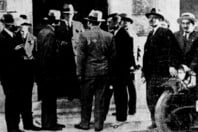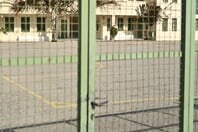At first we did not know the identity of the perpetrator. After a discussion about choosing a major, a Latino student quietly shared his anxiety: “God, I hope it’s not a Latino.” Then we heard that the first two victims had been an African-American man and a white woman. “I hope it isn’t a black person,” an African-American colleague told me in the mailroom. “If it is, we’re going to catch hell.”At a luncheon to welcome prospective Asian and Asian-American students, the fact that the shooter was an Asian man had already entered the conversation. Many in attendance were on edge as they speculated about his ethnicity and immigration status. In an odd game of “guess the shooter,” they didn’t want it to be one of their own: “I hope he’s not Vietnamese”; “I hope he’s not Filipino.” The list went on.It is revealing that on the day of the shooting, everyone who played the “guess the shooter” game with any sense of personal investment was a member of a minority group. Given our past experiences, we knew that, if the shooter had been white, the responsibility, blame, and anger would have begun with the individual. But for us, the responsibility, blame, and anger also implicated our racial and ethnic identity.Edward J. W. Park recounting the Virginia Tech Massacreαναφέρεται στο http://en.wikipedia.org/wiki/Virginia_Tech_massacre






















